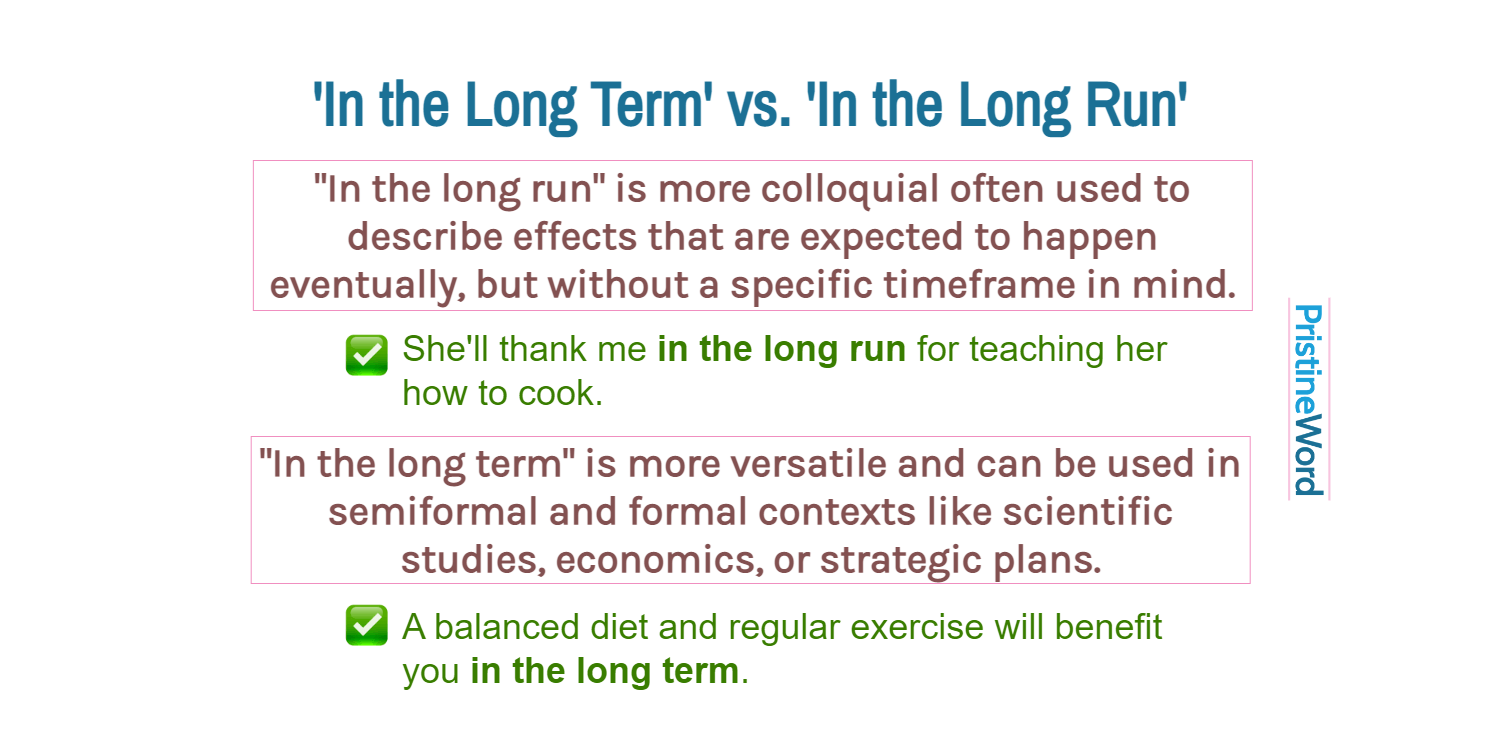The phrases "in the long term" and "in the long run" are often used interchangeably to describe a situation or effect that will happen over an extended period of time.
The phrases "in the long term" and "in the long run" are often used interchangeably to describe a situation or effect that will happen over an extended period of time.
In the long term/In the long run, renewable energy sources will likely replace fossil fuels.
However, there are subtle differences between them.
"In the long run" is more colloquial and can be used to describe general outcomes or effects that are expected to happen eventually, but without a specific timeframe in mind. This phrase is often used in everyday conversation.
In the long run, honesty is the best policy.
She'll thank me in the long run for teaching her how to cook.
"In the long term" is frequently used to describe a more specific or measurable period during which a particular event, trend, or action is expected to occur or continue. It is also more versatile and can be used in semiformal and formal contexts like scientific studies, economic forecasts, or strategic plans.
In the long term, technological advancements could eliminate certain types of jobs.
A balanced diet and regular exercise will benefit you in the long term.
So while these phrases are often interchangeable, choosing between them might depend on how formal or specific your communication needs to be.

